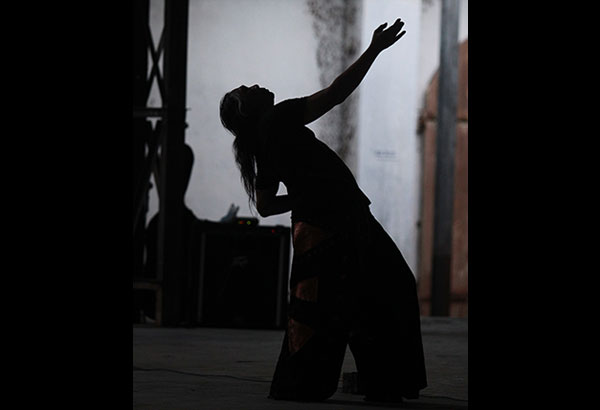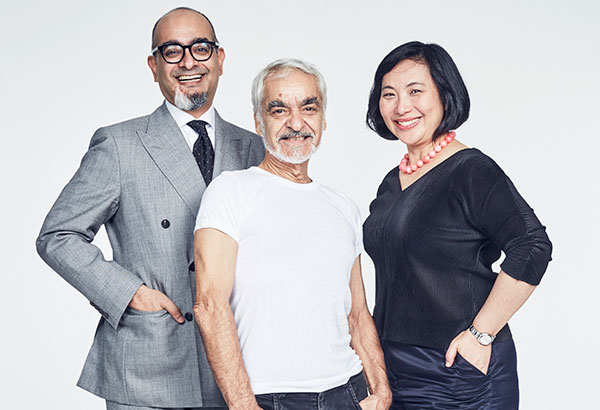Requisite reveries in Singapore’s International Festival of the Arts
Fiercely ambitious and thought-out, this year’s Singapore International Festival of the Arts (SIFA) works around the theme of “potentialities” as opening and conjecture towards the future. The thematics lend themselves well to Singapore today: the tiny but wealthy nation just celebrated 50 years of independence last year while mourning the passing of former Prime Minister and founder Lee Kuan Yew. There is a sense of restrained anxiety in the air but, also, mutual anticipation among its variegated populace.
SIFA positions itself as an international performing arts festival with a focus on commissioning new work. Of its 20 productions, 15 are “creations” or fresh commissions including Asian premieres, and co-productions and collaborations with Singaporean artists. Festival director and artist Ong Ken Sen, who spearheaded SIFA in 2014, has very consciously worked towards shifting the direction of SIFA in a studiously-planned “global arts city” like Singapore where “everything is a festival.”

Sardono W. Kusama’s “Expanded Cinema”
Supporting artists in the development of new work and respecting the demands and specificities of different artistic practices remain at the top of Ong’s priorities for the program. Sardono W. Kusomo’s “Retrospective,” for instance, instead of focusing solely on the Indonesian artist’s more prominent performance work presents a selection of experimental films (including a tribute to the painter, Raden Saleh) and paintings to provide a more representative understanding of the dancer’s oeuvre today.
“Potentialities” as a theme also resonates quite strongly in the city-state. Ong asserts that in accumulation-driven Singapore where the collective reigns supreme and the demand for quantity (and industry) is heavily imposed, the individual’s presence can be very much obscured.
“It’s the tyranny of the majority. Basically if you’re a minority you have very reduced rights because your rights are in relation to how many people belong in that group,” Ong says. This centering on the individual and independent thinking, according to the festival director, allows for reflection on accountability and transparency. He probes: “In a country that is very collective you are made to feel ashamed to be an individual… Yes, you are part of a collective, but what is your role?”
Ong, who also runs Singapore’s Theatreworks — an independent performance company that has become instrumental to the practices of artists in the country and the region, has also initiated O.P.E.N (Open, Participate, Engage, Negotiate), a “popular academy” and “pre-festival of ideas,” to serve as prelude to the main festival and its various propositions. It also aligns with the festival’s belief in developing an atmosphere of contemplation and criticality (what Ong calls “a thinking city”) with its audiences both within and beyond the festival.

Huzir Sulaiman and Claire Wong of Checkpoint Theatre with flamenco master Antonio Vargas, perform “The Last Bull: A Life in Flamenco” at SIFA this month.
O.P.E.N, although initially conceived “to lead to a deeper enjoyment of SIFA,” really is a festival in itself. It consists of an extensive exhibition of the work of photojournalist Newsha Tavakolian; a suite of performances by Markus & Markus, Rabih Mroué, Marina Otero and Olivier Saillard; a concert by Perhat Khaliq and Qetiq; a fashion show and workshops by Carla Fernandez; lectures, forums and conversations by Vali Mahlouji, Muna Tseng, and Tan Bee Thiam among others; an eclectic film screening program; and a huge party with installation art, music and performances called “Club Malam” — a re-imagining of a once super-hot nightclub that was once refuge and haven to Singaporean Malays in the 1940s and 1950s. This diversity of formats and subjects also echoes Ong’s thrust for the festival’s more open disposition towards difference, a particularly urgent topic in contemporary urban life.
“This festival works on a culture of openness, not a culture of fear… Many governments create this culture of fear to justify surveillance and more control… and so we grow up in fear, we are afraid of the Other... which leads to more laws. We are against this. We stand for transparency,” Ong stressed.
Taking on these weighty matters in the environment of a festival with a decidedly cosmopolitan impetus, one wonders how these ideas are translated and ingested by a festival-going public. The promise of a carnivalesque gathering that engages, rather than excludes, and overturns hierarchies — a Bacchanalia that confronts the horrors of everyday life — is an ideal that the art festival model has long labored after. It is a shared aspiration across an uneven, heavily mediated and mediatized artistic terrain that responds to, provokes, and perpetuates ideology. To transform, necessarily, remains a continuing enterprise.
* * *
SIFA opens on Aug. 11 and runs until Sept. 17. The O.P.E.N was held from June 22 to July 9. More information may be found at www.sifa.sg.



















